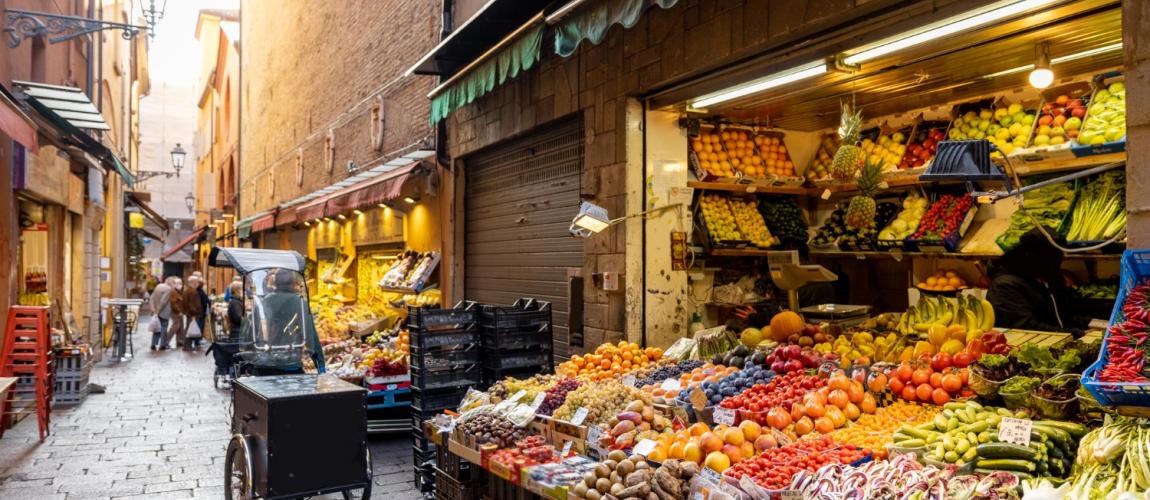Modern Bus Terminal and Municipal Market, Danli, Honduras

Photo Credit: Image by Freepik
On this page: A case study on Modern Bus Terminal and Municipal Market, Danli, Honduras. Find more at the Municipal Public-Private Partnership Framework - Project Summaries section for brief summaries of around 100 projects from around the world, examples of successes and challenges, as well as innovative ideas on solutions, or visit the Guidelines on Innovative Revenues for Infrastructure section.
Project Summary: Background The municipality of Danlí in Honduras had an outdated and disorganized bus terminal and was suffering from high traffic congestion on its main roads due to the accumulation of street sellers. To address these problems, an improved and expanded Danlí bus terminal and municipal market was proposed to the municipality, which included 418 commercial stalls, warehouse space, meeting rooms, parking space for 60 buses, waiting rooms and ticket stalls. Project Structure The 99,232,126.97 Lempiras (USD 4 million), 19,000 m2 project originated as an unsolicited proposal from Flefil y Asociados to the municipality of Danlí. The project as proposed did not require public funding or financing, but it did seek public financial guarantees. The project site was transferred to Flefil y Asociados for construction of the upgraded and expanded facilities, at a price agreed on in the transfer agreement. The private partner would be in charge of carrying out the study of the land, underground, and all characteristics of the terrain before commencing construction, so that no unexpected or additional costs could be claimed to the municipality. In 2016, Flefil y Asociados solicited approval for the transfer of contractual rights to Celaque Constructora, which was granted on May 26 of the same year. On completion of construction, Celaque Constructora recoups its investment plus a reasonable rate of return by selling the commercial stalls to transporters, current tenants, small and medium enterprises, and/or the municipality, at a price preset by the municipality and included in the PPP agreement (L. 34,000 / USD 1,390 per m2). If the municipality buys part or all the commercial stalls, it can rent them to persons not able to purchase a stall. Celaque Constructora is also entitled to sell the improved bus terminal spaces to small and medium carriers at a price preset by the municipality and included in the agreement (L. 30,000,000/ USD 1,200,000). The municipality is responsible for operating and maintaining all common areas and for not granting construction permits to similar works within the project zone. If the contract is terminated early due to force majeure, the municipality is only obliged to compensate for the works completed prior to the termination date. Other risks such as environmental, design, financial, and construction are borne by Celaque Constructora. Lessons Learned The entire project was designed to be energysaving and easily accessible by people with physical limitations. It was inaugurated at the beginning of 2018 and is expected to benefit more than 400,000 people. It was reported that, towards the end of 2017, vendors of the previous market (intended future tenants of the new facilities) began gathering on the streets around the newly constructed bus terminal and market to sell their products, which led to high congestion and several mobility problems. The vendors’ argument for selling on the streets centered on the price of the market stalls, which they considered too high for them to proceed with acquiring the new stalls. Several efforts were made to facilitate the purchase of the market stalls, without much immediate success. This led to an agreement between Celaque and the Vendors Association, signed in April 2018, which provided that the stalls would be purchased collectively by the Association, with financing from a local financial institution or individually by each vendor, depending on the case. This financing would be guaranteed by the government. Problems persisted, however, and the traffic congestion caused by the street sellers was creating serious threats to the safety and mobility of the community. To solve this problem, the Government of Danlí issued an executive order in June 2018 ordering the cessation of all sales activities on the street outside the new market and mandated the expulsion of all the street sellers. In addition, owing to the rise of “private” bus terminals operating near the new terminal, the executive order required all bus operations going in and out of the municipality to use the new bus terminal. The executive order also expanded the number of market stalls to be allocated to vendors and stipulated that the municipality would act as guarantor in favor of the vendors/stall-buyers before any financial institution that would provide loans for stall acquisition.1 Footnote 1: Source(s): http:// smartcities.gov.in/ upload/uploadfiles/files/ Compendium_of_PPP_ CasesMoUDs.pdf
The Guidelines on Innovative Revenues for Infrastructure (IRI) is intended to be a living document and will be reviewed at regular intervals. They have not been prepared with any specific transaction in mind and are meant to serve only as general guidance. It is therefore critical that the Guidelines be reviewed and adapted for specific transactions.
To find more, visit the Innovative Revenues for Infrastructure section and the Content Outline, or Download the Full Report. For feedback on the content of this section of the website or suggestions for links or materials that could be included, please contact the Public-Private Partnership Resource Center at ppp@worldbank.org.
Updated:
TABLE OF CONTENTS
I. Innovative Revenues for Infrastructure (IRI)
2. Introduction to Commercial Value Capture (CVC)
3. Applying CVC in Infrastructure Projects
2. Case Studies in CVC from International Experiences
Related Content
Select WBG PPP Toolkits
Featured Section Links
Additional Resources
Climate-Smart PPPs
Type of ResourceFinance Structures for PPP
Type of ResourceFinancing and Risk Mitigation
Type of Resource